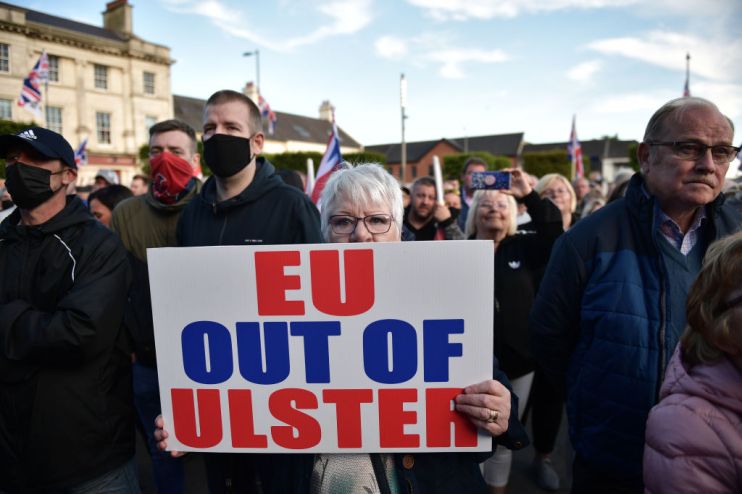Brexit: Northern Ireland Protocol ‘must be rectified’, says minister

The post-Brexit Northern Ireland Protocol is “not sustainable” and must be “rectified”, says Northern Ireland secretary Brandon Lewis.
Lewis told MPs today that the post-Brexit treaty is “causing issues for businesses and consumers and citizens in Northern Ireland” due to the stringent nature of checks from goods going from Great Britain to Northern Ireland.
Northern Ireland still follows the EU’s customs union and single market rules, unlike the rest of the UK, in order to avoid a hard border with the Republic of Ireland.
This has created a so-called border in the Irish Sea, which has infuriated parts of the Northern Ireland unionist community.
The UK and the EU are locked in tense negotiations over how to administer the Northern Ireland Protocol, with Boris Johnson calling for less checks on goods travelling between Great Britain and Northern Ireland.
Speaking to parliament’s Northern Ireland committee today, Lewis said: “We are very clear that the current position of the protocol is not sustainable, it is causing issues for businesses and consumers and citizens in Northern Ireland and we need to rectify that.
“Ultimately for us there is a very core point about the protocol, which is about protecting and respecting the UK’s internal market and not disrupting everyday lives of people in communities.
“We want to get that rectified and we are determined to do so, so I think it is reasonable for anybody to take the view that we have said that there will be changes because there has to be, the current status quo is not sustainable.”
One of the key issues being discussed is the EU’s ban of chilled meats, like sausages and minced beef, crossing from Great Britain to Northern Ireland that is due to begin at the end of June.
Johnson has threatened to flout this ban and unilaterally trigger Article 16, which would suspend the Northern Ireland Protocol and severely inflame tensions.
UK-EU minister Lord David Frost confirmed yesterday that there had been movement on this issue, with a delay to the ban until September being touted.